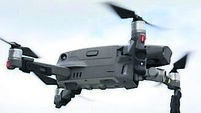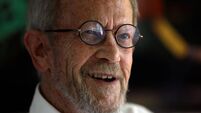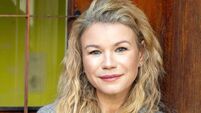Book review: John Boyne's 'Earth' is a psychological study of fame

John Boyne’s 15th novel for adults is the second of a quartet named after the elements. Picture: Chris Close
- Earth
- John Boyne
- Doubleday, €15.99
BOOKS & MORE
Check out our Books Hub where you will find the latest news, reviews, features, opinions and analysis on all things books from the Irish Examiner's team of specialist writers, columnists and contributors.







